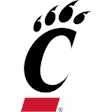In the legal equivalent of a two-out, two-strike, bottom-of-the-ninth-inning homer, John Coomer, the spectator struck in the eye by a hot dog launched by the Kansas City Royals mascot, has been granted a new trial in the case.
In March 2011, Coomer was found 100 percent at fault by a jury that sided with the Royals and Byron Shores, who played the role of Sluggerrr from February 1996 to October 2009. Both had argued that Shores was adequately trained and that Coomer assumed the risk of injury when he sat six rows behind the third-base dugout.
After the verdict, Coomer's motions for a new trial and a judgment notwithstanding the verdict were denied by the trial court. However, Coomer then argued before the Missouri Court of Appeals that, under the circumstances, the trial court erred in instructing the jury on the Royals' defense of primary implied assumption of risk. He contended that primary implied assumption of risk was not a defense available to the Royals because a mascot throwing hot dogs directly at business invitees is not an inherent or unavoidable risk associated with the sport of baseball.
The appellate court agreed, reasoning that the primary implied assumption of risk defense necessarily involves a voluntary participation in an activity. The voluntary participation serves as consent to the known, inherent risks associated with the activity and removes any duty on the part of the defendant to protect the injured person from those harms. The appellate court further noted that the sorts of risks assumed do not include risks that are created by a defendant's negligence. The risk of being hit in the face by a hot dog is not a well-known or incidental risk of attending a baseball game. Although the Hot Dog Toss was a customary activity at Royals games beginning in 2000, the "custom" did not mean a spectator like Coomer somehow consented to the risk of being hit by a promotional item. As such, unlike the risk of being struck by a baseball, Coomer did not assume the risk of being struck by a hot dog.
The trial court's instructions to the jury were prejudicial, the appeals court ruled, because the primary implied assumption of risk defense was a complete and total bar to Coomer's recovery. However, the court determined that at the new trial, the Royals will be entitled to a "comparative fault" instruction based on the Royals' secondary implied assumption of risk defense, since that defense empowers a jury to assess the relative fault of the parties and decreases an injured party's financial recovery in proportion to his or her culpability in the incident. The appellate court cited evidence that Coomer voluntarily chose to sit close to the action, knew about the hot dog toss promotion and looked away immediately prior to Sluggerrr's hot dog throw. Therefore, the parties will have another chance at bat to persuade a jury who should be held responsible.




































